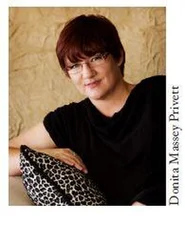Brad Parks - The Girl Next Door
Здесь есть возможность читать онлайн «Brad Parks - The Girl Next Door» весь текст электронной книги совершенно бесплатно (целиком полную версию без сокращений). В некоторых случаях можно слушать аудио, скачать через торрент в формате fb2 и присутствует краткое содержание. Год выпуска: 2012, ISBN: 2012, Издательство: Minotaur Books, Жанр: Триллер, на английском языке. Описание произведения, (предисловие) а так же отзывы посетителей доступны на портале библиотеки ЛибКат.
- Название:The Girl Next Door
- Автор:
- Издательство:Minotaur Books
- Жанр:
- Год:2012
- ISBN:031266768X
- Рейтинг книги:4 / 5. Голосов: 1
-
Избранное:Добавить в избранное
- Отзывы:
-
Ваша оценка:
- 80
- 1
- 2
- 3
- 4
- 5
The Girl Next Door: краткое содержание, описание и аннотация
Предлагаем к чтению аннотацию, описание, краткое содержание или предисловие (зависит от того, что написал сам автор книги «The Girl Next Door»). Если вы не нашли необходимую информацию о книге — напишите в комментариях, мы постараемся отыскать её.
The Girl Next Door — читать онлайн бесплатно полную книгу (весь текст) целиком
Ниже представлен текст книги, разбитый по страницам. Система сохранения места последней прочитанной страницы, позволяет с удобством читать онлайн бесплатно книгу «The Girl Next Door», без необходимости каждый раз заново искать на чём Вы остановились. Поставьте закладку, и сможете в любой момент перейти на страницу, на которой закончили чтение.
Интервал:
Закладка:
It turned out to be a six-inch brief from Saturday’s newspaper. And before I could even begin to read the article, the headline told me most of what I needed to know:
“BLOOMFIELD POLICE INVESTIGATE HIT AND RUN.”
* * *
It took only a few more seconds to read the story and pull away the pertinent details. Nancy Marino had been struck by a speeding car while delivering newspapers on Ridge Avenue early Friday morning. An anonymous caller had tipped off the police about the accident but had provided no further details. The Bloomfield Police Department was asking anyone with information to call their tips line, which is cop speak for, “Yeah, we got nothing.”
I was embarrassed I hadn’t seen the story the first time around. Sure, it was a mere six-inch brief buried in the guts of the Saturday paper-an easily ignored spot in our least circulated edition of the week-but that didn’t excuse my ignorance. A reporter doesn’t have to know everything, but he ought to know what’s written in his own newspaper.
Now I understood why Publisher Jackass didn’t want me quoting him. Nancy was killed in the line of duty. He was worried about the paper’s exposure to a lawsuit and feared if he said anything it might be used against him later.
My cynical side-a not insubstantial part of any newspaper reporter-also wondered if that’s why we hadn’t written a bigger story about it. Wrongful-death lawyers read the newspaper like everyone else. An unknown hit-and-run driver is impossible to sue and probably wouldn’t be worth much even if you could find him. But the state’s largest newspaper is a juicy target, one with considerable assets.
All it would take was some lawyer making the argument that because the paper didn’t provide reflective vests for its carriers-or didn’t give them proper training in how to dodge oncoming traffic, or didn’t give them car-repellent deodorant, or whatever-the paper was therefore legally responsible for Nancy’s death. That would open up the possibility of damages for pain and suffering, loss of survivorship comfort, and a host of other things that juries just loved to award suffering families. Jackass didn’t want any more attention given to this than was absolutely necessary.
At least in theory, the publisher has no say over how the paper covers the news-a division we take so seriously we refer to it as the separation of church and state. But Harold Brodie, the seventy-something executive editor who had run the Eagle-Examiner newsroom for the last quarter century, was inexplicably deferential to Gary Jackman. It was a curious thing, something most of us wrote off as a sign the old man’s Corn Flakes were going a bit soggy. Nevertheless, if Jackass were to make a phone call and apply some gentle pressure … well, let’s just say that while there’s separation of church and state, priests still tend to listen when they get phone calls from congressmen.
I refolded the clipping and handed it back to Nancy’s sister.
“I’m so sorry,” I said. “I had no idea.”
Anne kept her head bent as she stowed the piece of paper in her purse. I glanced over at Mrs. Marino and sister Jeanne, who was still moving her head back and forth to some disjointed rhythm, one she alone could hear. They were receiving visitors and seemed to be paying no attention to either of us. I turned back to Anne.
“I really just want to write a tribute to Nancy. From reading the obit, she struck me as the kind of hardworking person most folks probably don’t appreciate until they’re gone.”
The sister looked up from her purse, her eyes suddenly moist.
“Nancy hadn’t missed a day of work in nineteen years,” she said, then bit her lower lip. The unflappable sister was struggling to keep her composure.
Not wanting to push her over the edge, I eased back on the emotional throttle.
“You’re her sister, yes?” I said.
“I’m Anne McCaffrey, yes.” She blinked a few times, glanced up at the ceiling for a second, then looked back at me. “I’m sorry I gave you a hard time. This has just been so difficult for … my mother.”
“I understand. And I didn’t mean to be a bother.”
“You’re just doing your job.”
“No, actually, this isn’t my job,” I corrected her. “Normally I’m an investigative reporter. This is something I’m doing on my own initiative. If you really don’t want a story done, I’ll walk away right now. Otherwise, I’d like to talk to the people here and get them to say some good things about your sister, which I’m sure won’t be difficult. Would that be okay?”
Anne actually smiled for the first time.
“We’d really like that,” she said. “What did you say your name was again?”
“Carter Ross. Let me give you a card,” I said, reaching into my back pocket for my wallet. I was just pulling out one of my business cards when Nancy’s other sister-who, as far as I knew, hadn’t been following our conversation-suddenly spoke up.
“I’d like one, too,” Jeanne said.
I looked at the woman, with her semidark glasses and groovy, Berkeley-esque head swaying. Suddenly, I recognized she wasn’t dancing to any music. She had some kind of neurological disease-Parkinson’s, perhaps-which meant she had little control over her head’s wobbling. The movement made her hard to focus on, and I realized my attempts to do so might create the impression I was staring.
“I’d like a card, too,” she said again, reaching out a trembling hand.
“Jeanne, no,” Anne said, gently but firmly.
“I’m her sister, too, and I have a right to say what I want to the reporter,” Jeanne said. Her voice had a monotone quality to it-another Parkinson’s symptom? — yet she was clearly growing agitated, and her volume was rising to indicate it.
“I know you have a right,” Anne said, making her tone softer as Jeanne’s got louder. “I’m not here to debate your rights.”
“She’s a lawyer; she’s always debating people’s rights,” Jeanne told me, spitting out “lawyer” in a way that made it clear she wasn’t a friend to the American Bar Association. “Could I have your card, please?”
I acquiesced, if only because I wanted her to be able to put her hand down-the longer she kept it outstretched, the more it shook. Anne looked disapprovingly at the transaction. The family dynamic was becoming clear to me: there was Anne, the oldest sister, the controller, always trying to maintain order; Jeanne, the middle sister, the free spirit, trying to keep things disorderly; and Nancy, the youngest sister, the worker bee, who had probably just tried to stay out of the way and keep the peace.
“Jeanne, I don’t know if it’s the best idea for you to-”
“She doesn’t want me talking to you,” Jeanne told me, ignoring her sister. “She’s afraid I’ll say something embarrassing that will hurt her reputation.”
“Jeanne, that’s not fair-”
“Fair? We’re going to talk about fair now? Was it fair that you stayed in law school when Daddy died?”
Anne’s face flushed red and her jaw locked.
“About as fair as you running off to California, ” Anne replied tersely, saying “California” with the same kind of vehemence as Jeanne said “lawyer.”
There’s nothing like a funeral to rip open old family wounds. And this was evidently not the first time these two sisters had gone for blood on this particular topic. I wished I hadn’t stumbled into the middle of it. I needed a few nice quotes about Nancy for my obit, not a reprise of some ancient sisterly squabble.
“That is not how it happened, and you know-” Jeanne started until Anne’s low-but-fierce voice drowned her out.
“If you could have just stayed around for one year instead of going back to your cult-”
Читать дальшеИнтервал:
Закладка:
Похожие книги на «The Girl Next Door»
Представляем Вашему вниманию похожие книги на «The Girl Next Door» списком для выбора. Мы отобрали схожую по названию и смыслу литературу в надежде предоставить читателям больше вариантов отыскать новые, интересные, ещё непрочитанные произведения.
Обсуждение, отзывы о книге «The Girl Next Door» и просто собственные мнения читателей. Оставьте ваши комментарии, напишите, что Вы думаете о произведении, его смысле или главных героях. Укажите что конкретно понравилось, а что нет, и почему Вы так считаете.












